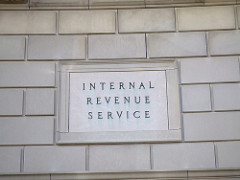 Tax season is here. On January 23rd 2017 the IRS officially started accepting your 2016 tax returns. They expect over 153 million people to file their taxes. And now is the prime time for TAX SCAMS targeting hundreds of millions of people.
Tax season is here. On January 23rd 2017 the IRS officially started accepting your 2016 tax returns. They expect over 153 million people to file their taxes. And now is the prime time for TAX SCAMS targeting hundreds of millions of people.
Don’t be a victim.
Taxpayers Beware and Be Aware of TAX SCAMS
Protect yourself against tax scams. Be aware of the signs, so you don’t get ripped off of your hard earned money.
Here are some tips to help you avoid tax scams:
IRS Calling (or is it a scammer?)
Some scammers call you and claim to be the IRS. Your callerid may show the letters IRS, but that doesn’t make them the real IRS. The caller may not even be in the United States.
Sure they may rattle off a badge number to sound official. If they are really good, they could have the last four digits of your Social Security number too. Still, none of this information makes them the official IRS.
Beware of anyone who calls you claiming you owe the IRS money and demanding you pay up now to avoid being arrested or anything else extreme. This is a big RED flag, especially if they ask you to wire the money or give them a prepaid debit card to cover the payment.
The IRS would not contact you by phone and threaten you with jail time if you do not make an immediate payment. According to the FTC, the IRS will contact you through the mail first and they won’t require a specific payment type like a prepaid debit card or wire transfer.
Tips to handle this type of situation:
- Do not give into their “pay now” money demands or provide any of your personal information (i.e., Social Security number, bank info)
- Write down the phone number calling you
- Hang up the phone
- If you’re really concerned, contact the IRS to discuss the matter. You can visit irs.gov or give them a call at 800-829-1040
- File a complaint with the FTC. You may do it online at ftc.gov/complaint or give them a call at 877-FTC-HELP
Here’s what the IRS says about Telephone Scams:
Callers claim to be employees of the IRS, but are not. These con artists can sound convincing when they call. They use fake names and bogus IRS identification badge numbers. They may know a lot about their targets, and they usually alter the caller ID to make it look like the IRS is calling.Victims are told they owe money to the IRS and it must be paid promptly through a pre-loaded debit card or wire transfer. If the victim refuses to cooperate, they are then threatened with arrest, deportation or suspension of a business or driver’s license. In many cases, the caller becomes hostile and insulting. Or, victims may be told they have a refund due to try to trick them into sharing private information. If the phone isn’t answered, the scammers often leave an “urgent” callback request.
Note that the IRS will never:
- Call to demand immediate payment using a specific payment method such as a prepaid debit card, gift card or wire transfer. Generally, the IRS will first mail you a bill if you owe any taxes.
- Threaten to immediately bring in local police or other law-enforcement groups to have you arrested for not paying.
- Demand that you pay taxes without giving you the opportunity to question or appeal the amount they say you owe.
- Ask for credit or debit card numbers over the phone.
Email Phishing – Don’t fall for the bait
You may receive an email from someone claiming to be the IRS. In this email, they may direct you to click on a link or to open a file. When you click the link, they may designed a website to look exactly like the IRS and ask you to update some personal information. Don’t fall for these traps and get scammed!
The IRS first form of contact is by mail, not email.
So beware of emails that impersonate the IRS to try and get your personal information. These emails may be poorly written and/or contain attachments or links to try to entice you to provide them with your personal information or try to load malware on your computer.
Tips to handle email phishing:
- Do not click on any links or attachments in the email
- Do not provide any personal information (i.e., Social Security number, bank info)
- Protect your computer with anti-virus software
- Contact the IRS to discuss any concerns you may have about the email. Visit irs.gov or give them a call at 800-829-1040
The emails are designed to trick taxpayers into thinking these are official communications from the IRS or others in the tax industry, including tax software companies. The phishing schemes can ask taxpayers about a wide range of topics. E-mails can seek information related to refunds, filing status, confirming personal information, ordering transcripts and verifying PIN information.
When people click on these email links, they are taken to sites designed to imitate an official-looking website, such as IRS.gov. The sites ask for Social Security numbers and other personal information, which could be used to help file false tax returns. The sites also may carry malware, which can infect people’s computers and allow criminals to access your files or track your keystrokes to gain information.
What to look for in these scams
Taxpayers receive an official-looking email from what appears to be an official source, whether the IRS or someone in the tax industry.
The underlying messages frequently ask taxpayers to update important information by clicking on a web link. The links may be masked to appear to go to official pages, but they can go to a scam page designed to look like the official page. The IRS urges people not to click on these links but instead send the email to [email protected].
Click here for more information on IRS Tax scams.
Happy Tax Season!
Photo: saturnism




